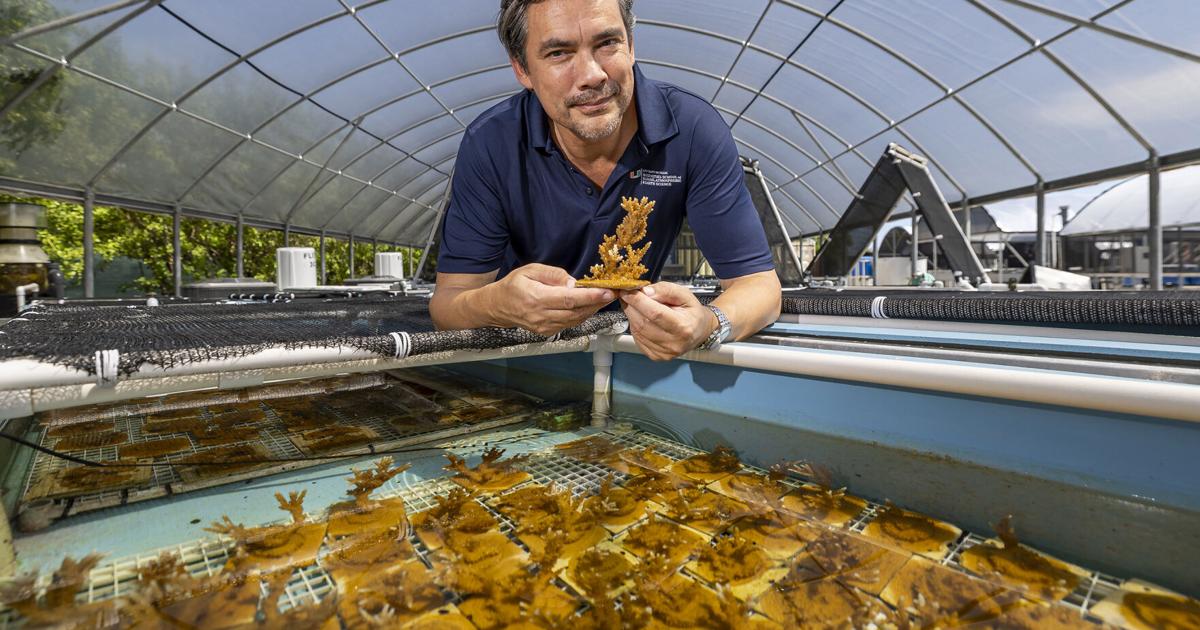By Ghana News
Copyright ghanamma

Ghana is positioning itself as West Africa’s mining transformation leader ahead of the continent’s premier extractives gathering, announcing sweeping policy reforms that could redefine how African nations balance resource extraction with community empowerment and environmental sustainability.
Speaking ahead of the 11th West & Central Africa Mining Summit & Expo (WaCA Mining 2025) scheduled for September 25-26 at Kempinski Hotel Gold Coast City in Accra, Minister for Lands and Natural Resources Emmanuel Armah-Kofi Buah declared that Ghana represents proof that “responsible investment and transformative development can go hand in hand.”
The timing of Ghana’s reform announcement coincides strategically with global demand for critical minerals essential to the green energy transition, positioning the country to capture maximum value from its vast mineral wealth while addressing decades of community marginalization from extractive activities.
The government launched the Responsible Cooperative Mining and Skills Development Programme (rCOMSDEP) on August 6, 2025, in Obuasi, marking what Armah-Kofi Buah called the end of the “era of dig and die” in Ghana’s mining sector. This flagship initiative represents the most comprehensive reform of small-scale mining in Ghana’s modern history.
The cooperative mining model at the heart of Ghana’s reforms addresses longstanding grievances from communities who have watched international companies extract billions in mineral wealth while contributing minimally to local development. The amendment would include giving legal backing to cooperative mining scheme as a measure to solve the illegal mining (galamsey) menace in forest reserves and water bodies.
Ghana’s reform package extends beyond cooperative mining to include fundamental changes to licensing structures and community benefit arrangements. The new framework will eliminate indefinite prospecting licenses and shorten mining leases from the current 30-year maximum, creating more opportunities for domestic participation and ensuring regular review of mining agreements.
The Minister emphasized that “existing agreements are sanctified and will be respected”, providing reassurance to international investors while signaling that future arrangements will operate under enhanced transparency and community participation requirements.
The strategy is aimed at reforming the sector while empowering artisanal and small-scale mining (ASGM) initiatives, addressing environmental damage from illegal mining operations that have devastated water bodies and forest reserves across gold-producing regions.
The WaCA Mining 2025 summit arrives at a critical moment for West and Central Africa’s extractive industries, as global supply chain disruptions and green energy demands create unprecedented opportunities for African mineral producers. Ghana’s reform agenda could establish a regional template for balancing investor returns with community development.
The Ghana National Association of Small Scale Miners (GNASSM) has assured the Minister of Lands and Natural Resources, Emmanuel Armah-Kofi Buah, of their unwavering support for his vision to transform the mining industry, suggesting broader industry alignment behind the reform agenda.
The summit’s organizers, led by CEO Maggie Tan of Magenta Global, have positioned the event as a convergence point for exploring investment strategies, Environmental, Social, and Governance (ESG) compliance, and innovative mining technologies. Ghana’s reform announcements provide concrete examples of how African governments are adapting to evolving investor expectations.
Ghana maintains its position as Africa’s leading gold producer, with production expected to increase to 5.1 million ounces in 2025, providing significant leverage in negotiating more favorable terms with international mining companies and establishing new cooperative arrangements.
The royalty structure review component of Ghana’s reforms addresses long-standing concerns about the distribution of mining revenues between government, companies, and affected communities. Traditional approaches have concentrated benefits at national level while leaving mining communities with environmental degradation and limited economic opportunities.
Ghana’s emphasis on value addition and local content requirements reflects broader continental trends toward beneficiation of raw materials before export. The reforms create incentives for downstream processing activities that could generate higher-paying jobs and transfer technology to domestic enterprises.
The Minerals and Mining Policy of 2014 and the Minerals and Mining Act, 2006 (Act 703), has been operational for nearly two decades. Given the rapid changes occurring globally and regionally, it has become imperative reassessed both the policy and legislative frameworks.
The WaCA Mining 2025 summit provides Ghana with a continental platform to demonstrate these reforms to potential investors and development partners. The country’s ability to balance community empowerment with investment attraction could influence policy approaches across the region.
For international mining companies operating in West Africa, Ghana’s reform agenda signals evolving expectations around community engagement, environmental responsibility, and local content. Companies that adapt quickly to these requirements may gain competitive advantages in securing future concessions.
The success of Ghana’s mining transformation will likely determine whether other African nations adopt similar cooperative models or maintain traditional approaches that have generated limited community benefits despite substantial resource extraction over decades.



